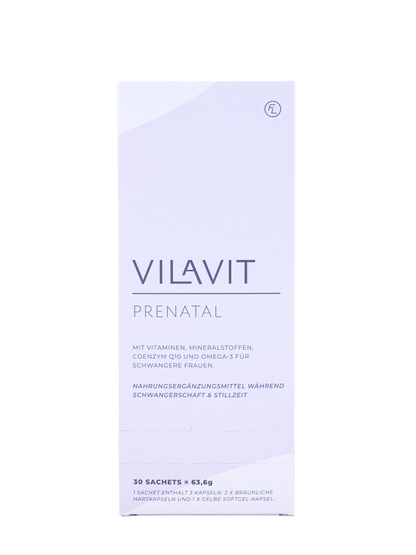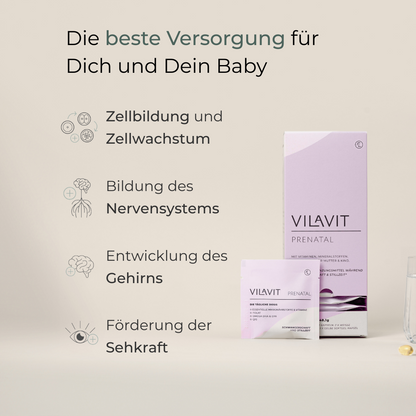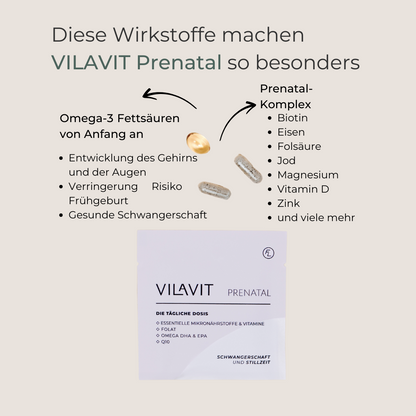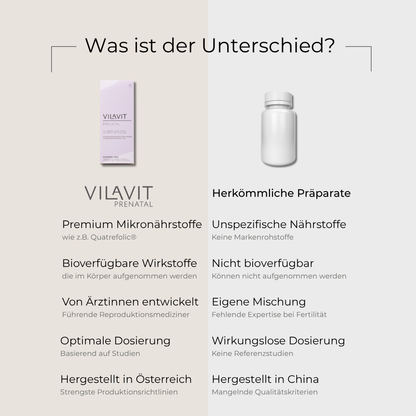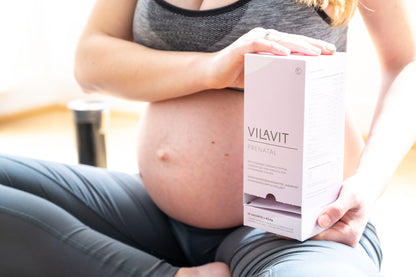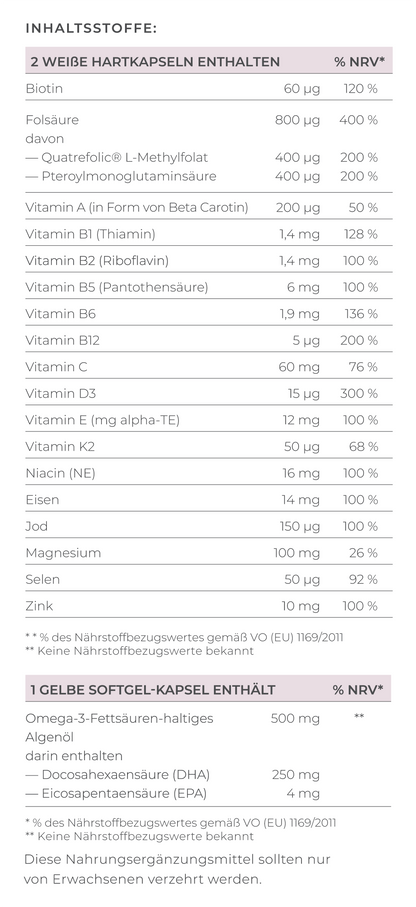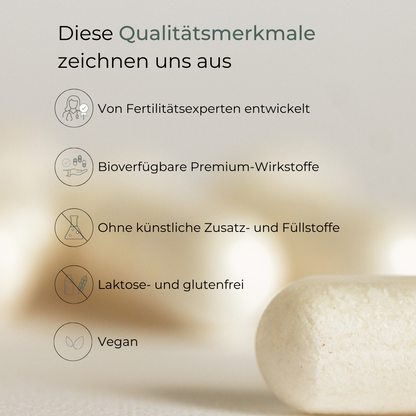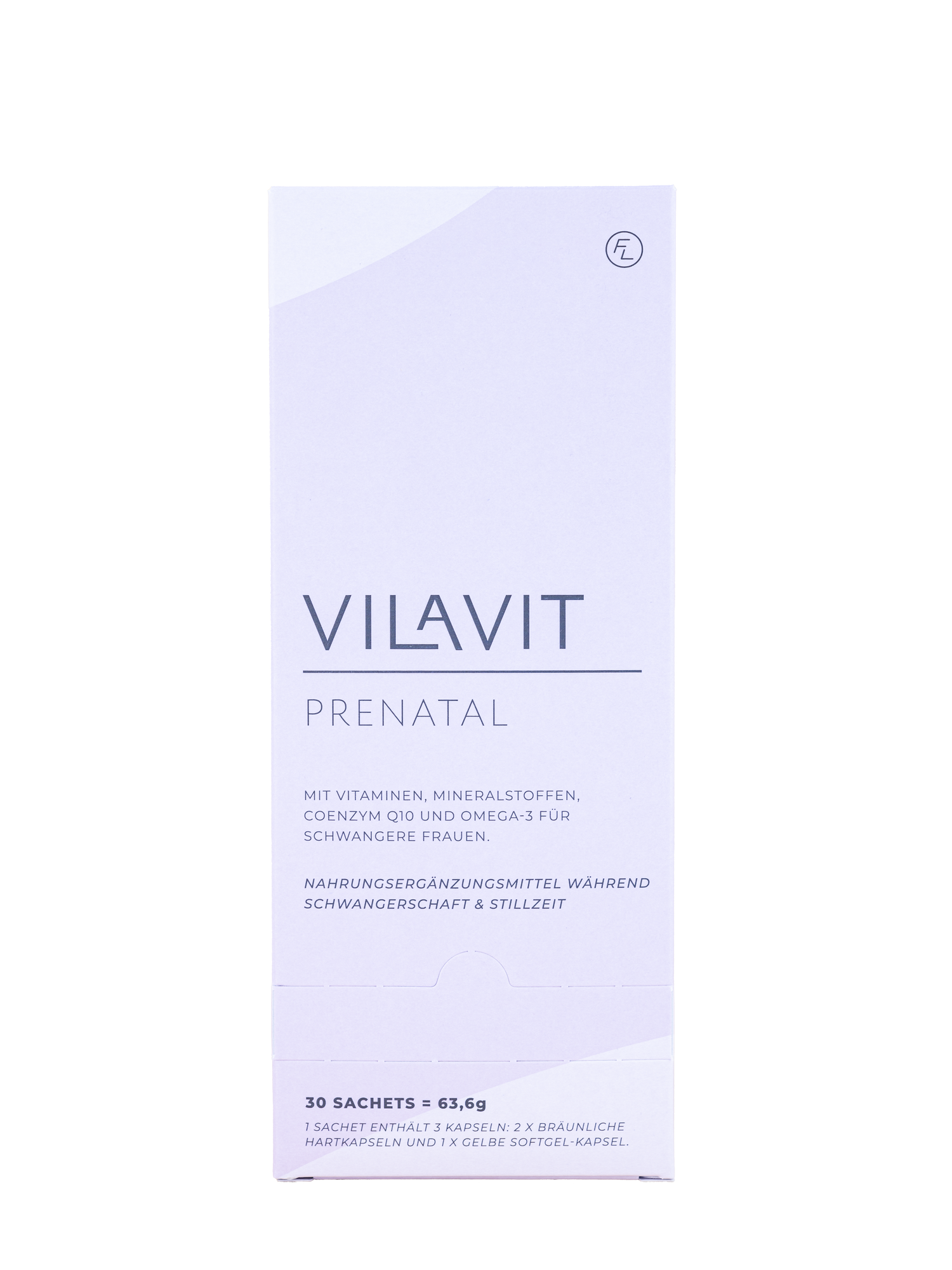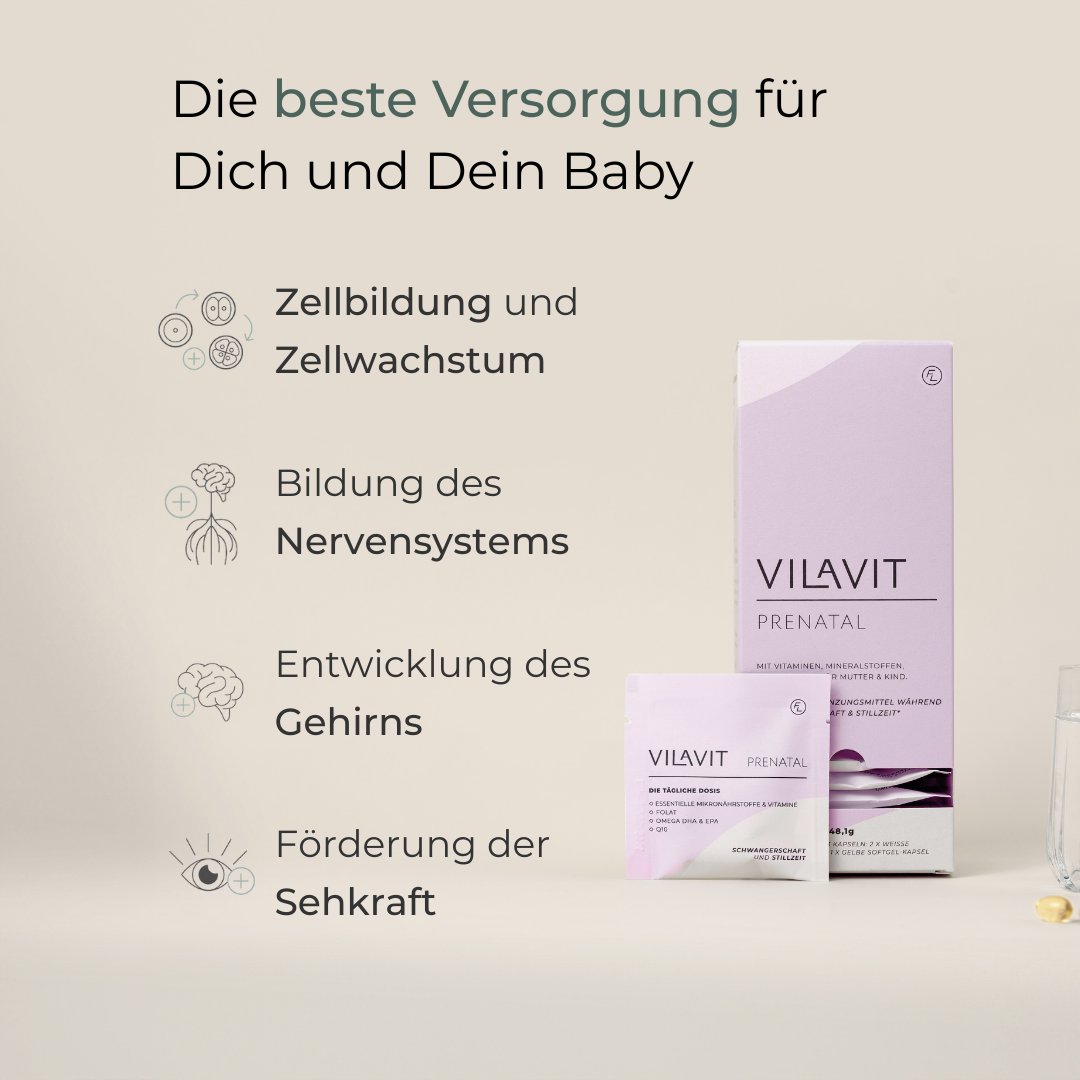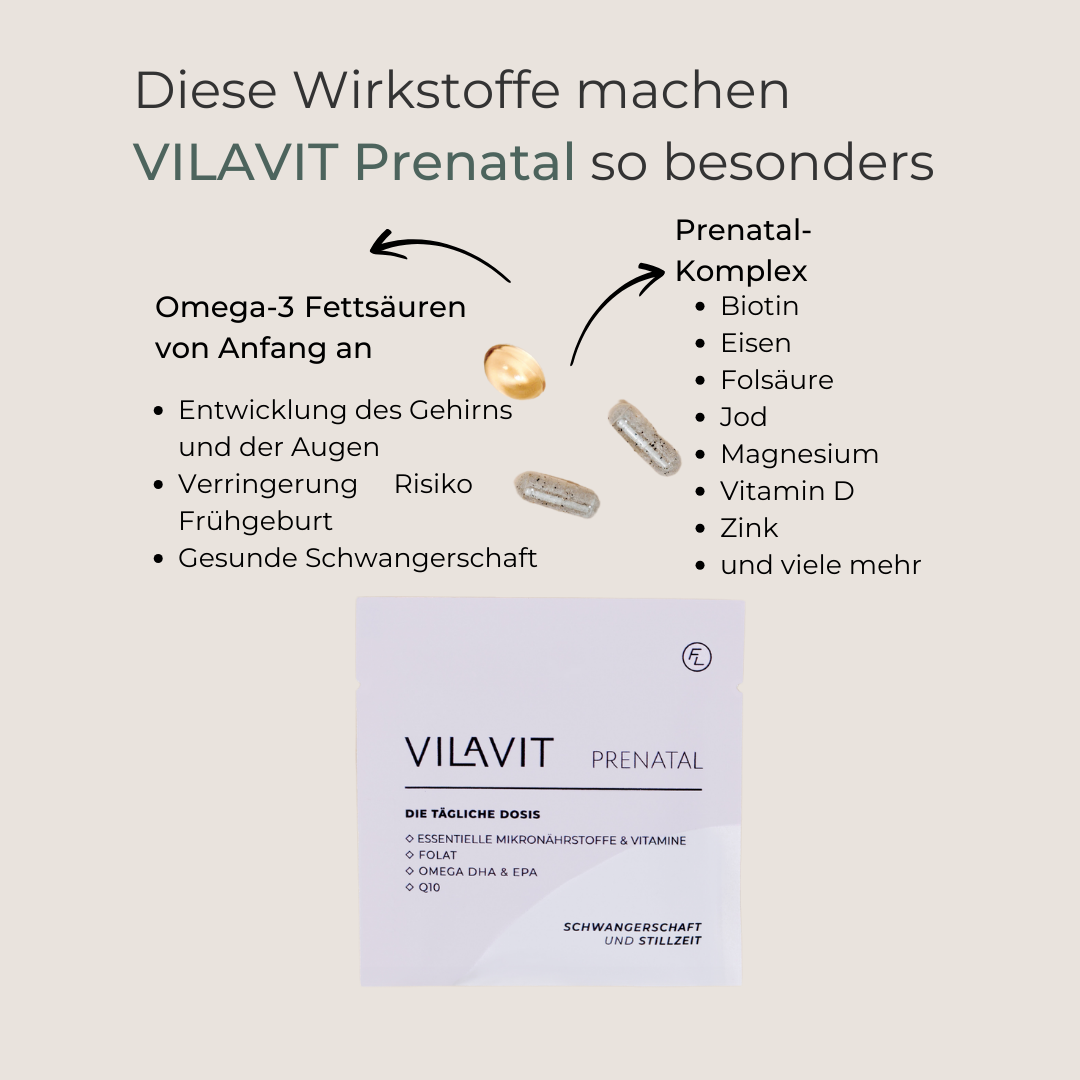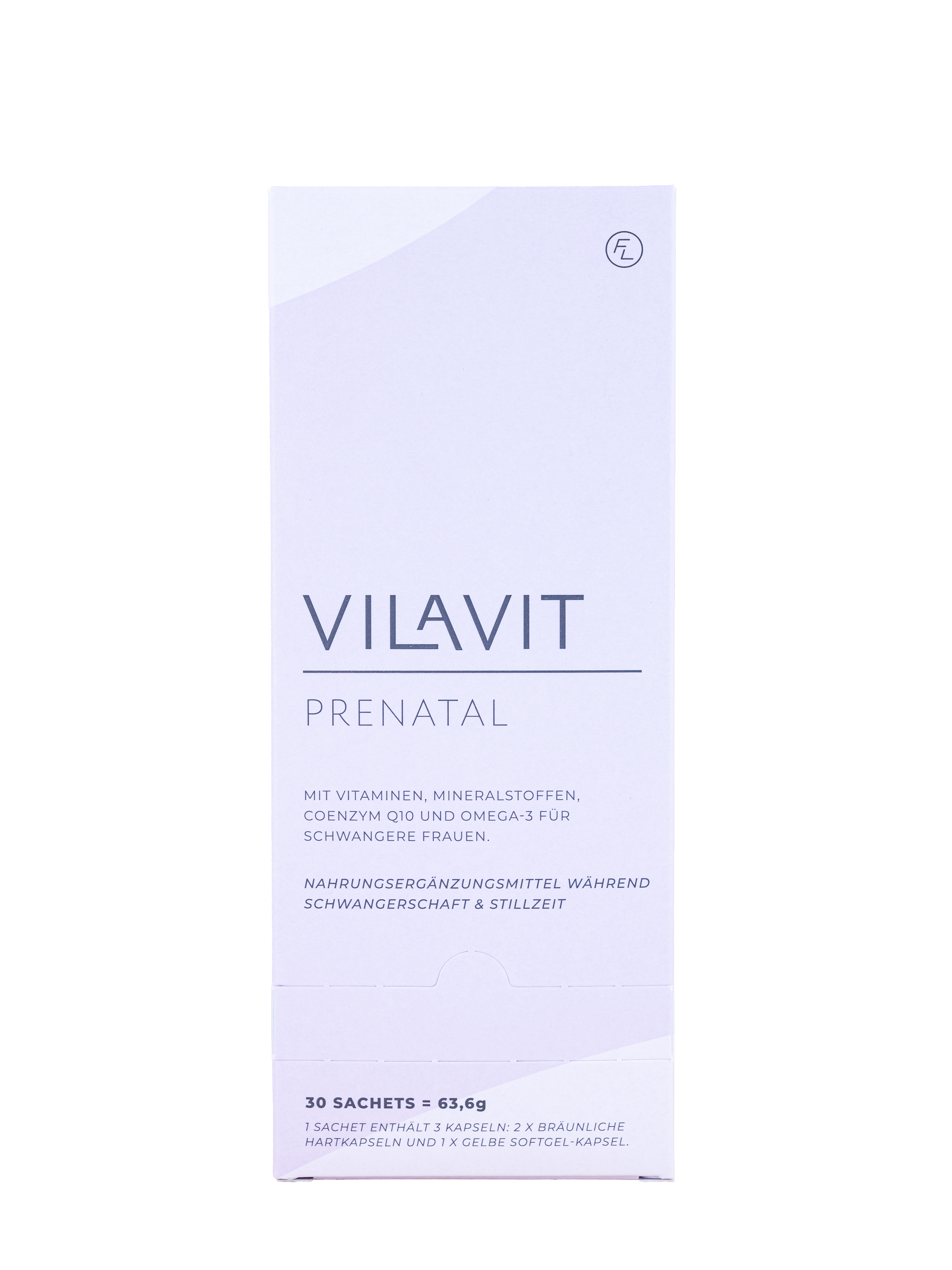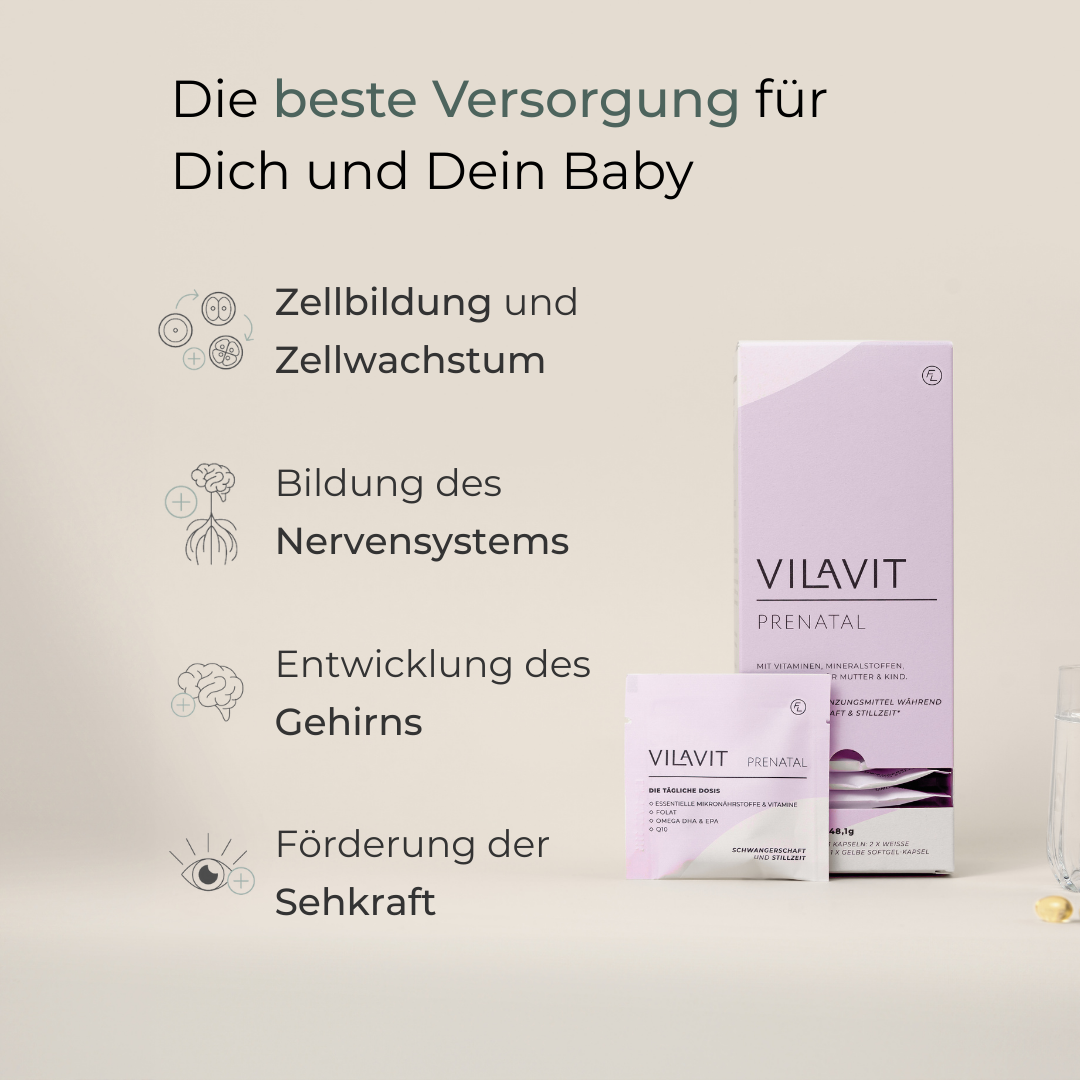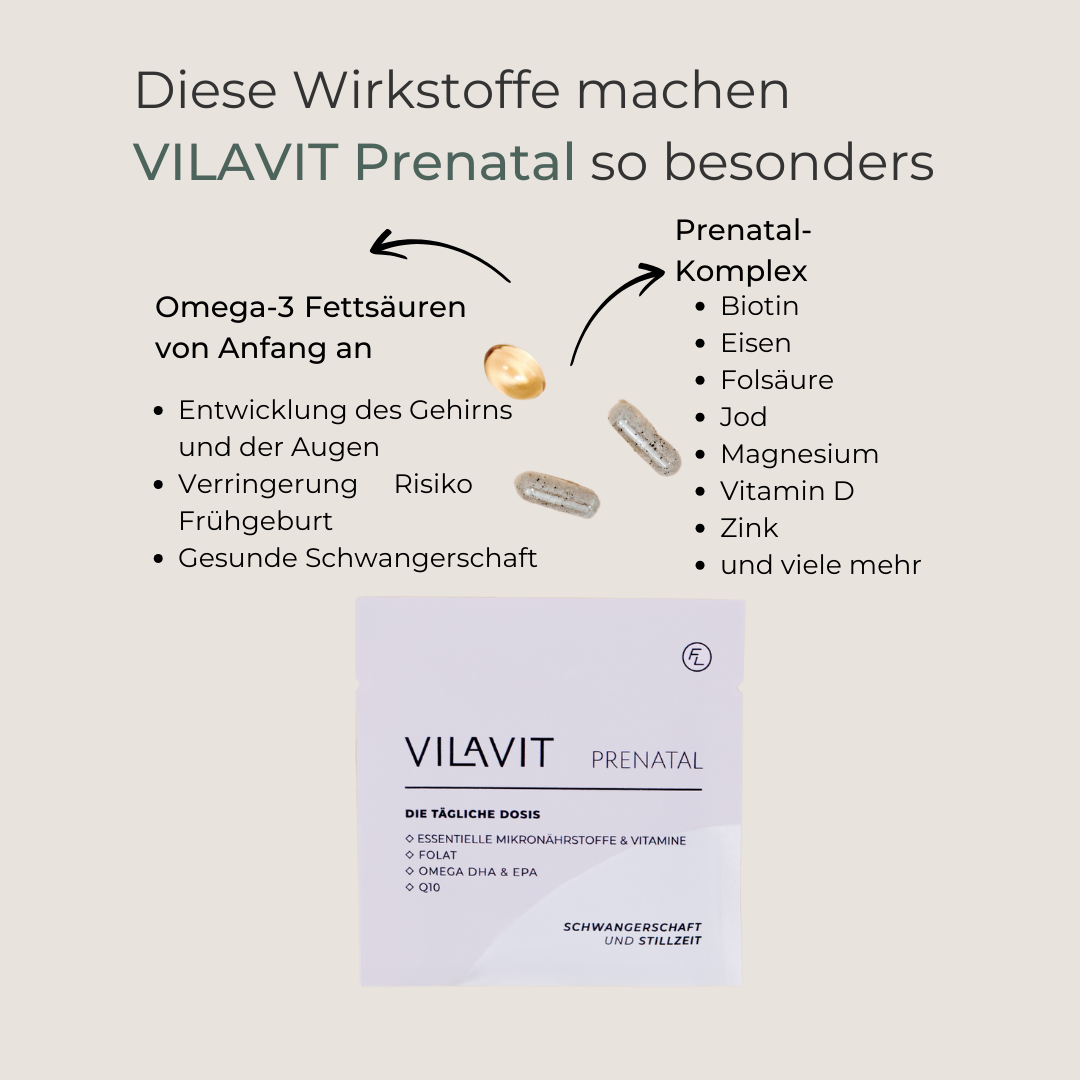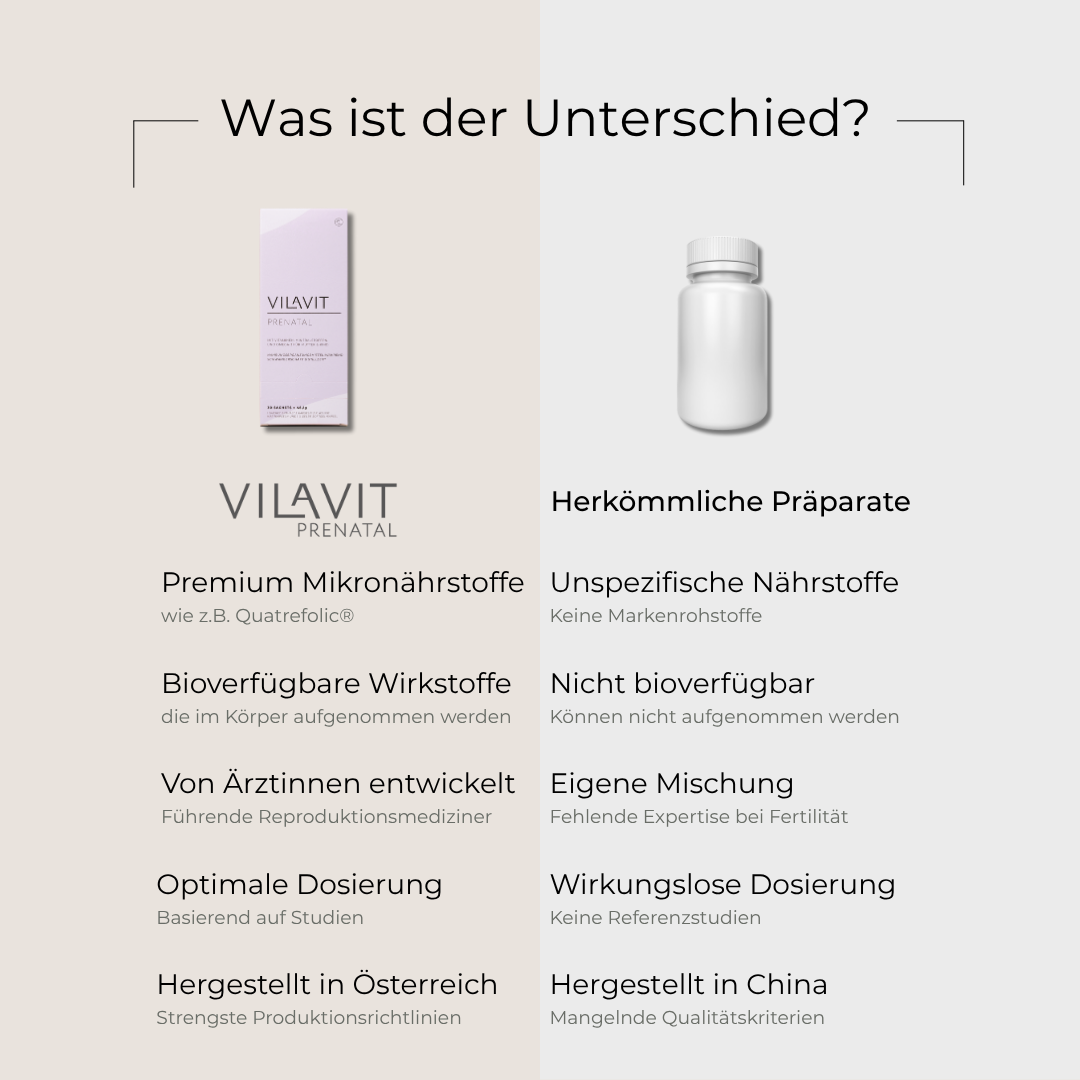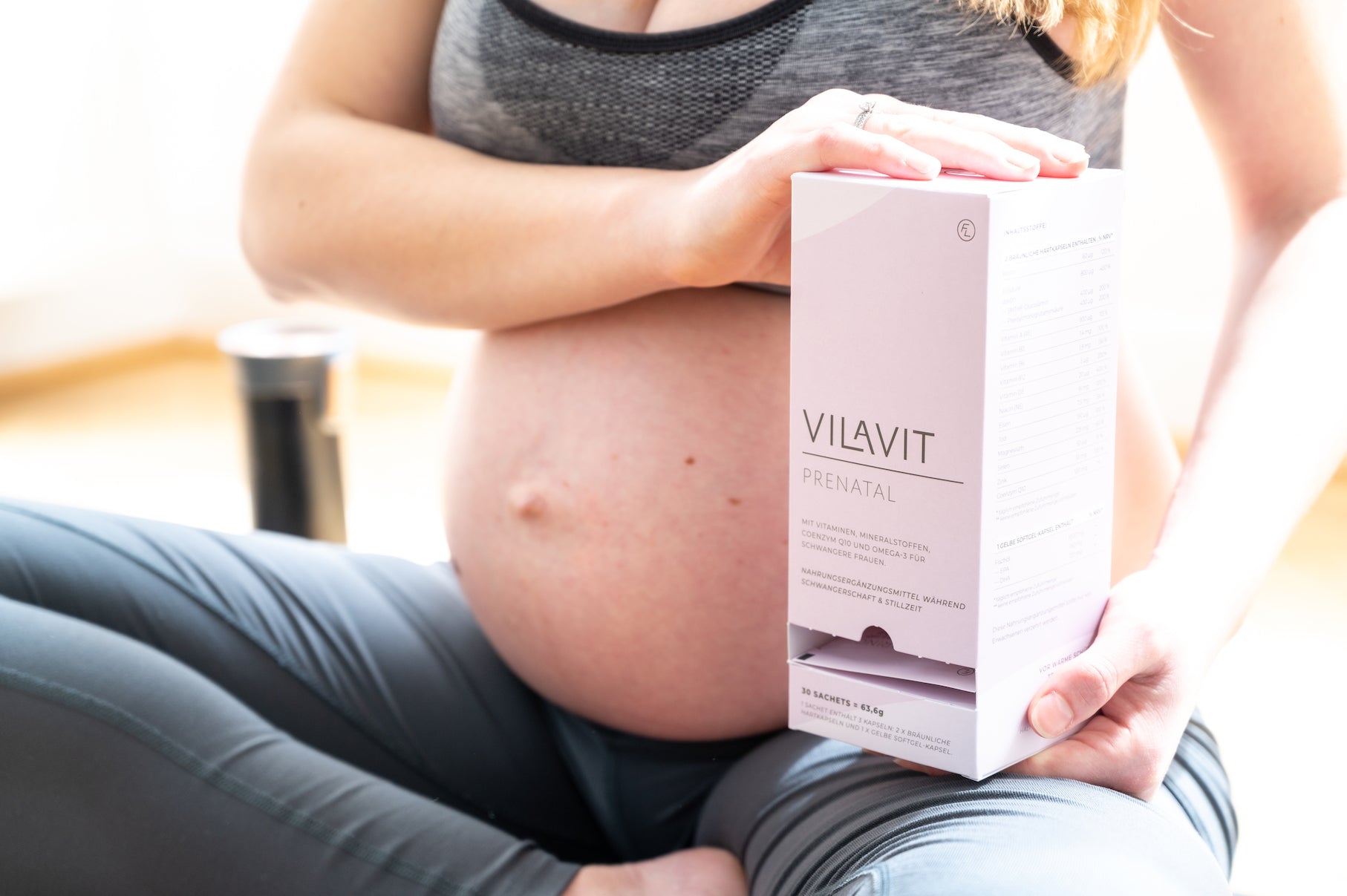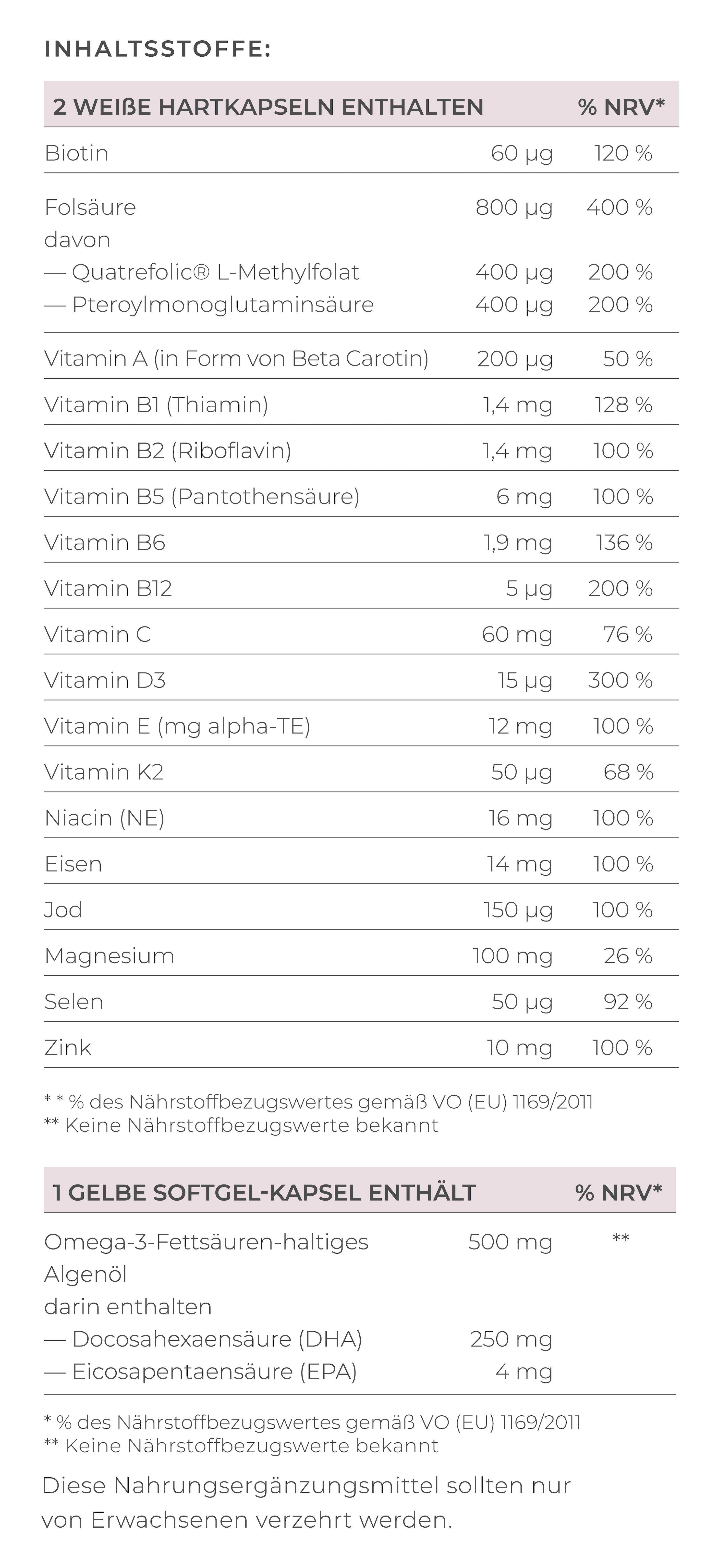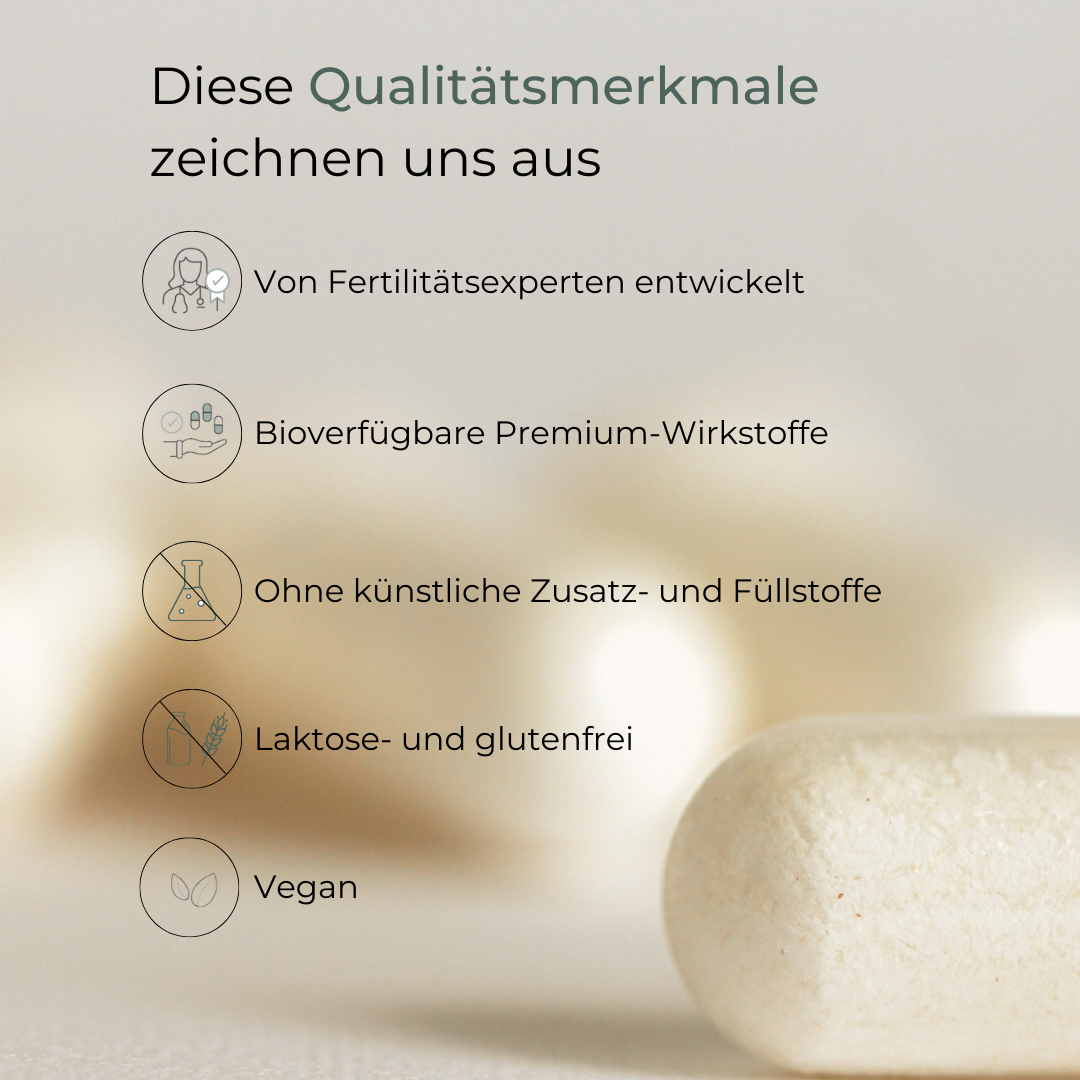Everything you need to know about pregnancy vitamins:
-
Pregnancy significantly increases nutrient requirements.
-
A balanced diet alone is often not enough to cover the increased requirement.
-
Supplementation - ideally before conception - supports healthy development.
-
Regular medical check-ups help to identify deficiencies at an early stage and treat them in a targeted manner.
-
The quality of the supplements counts - bioavailable forms are better absorbed by the body and therefore have the desired effect.
Increased requirements during pregnancy
Pregnancy is a time when the mother-to-be's body performs at its best. Pregnancy significantly increases the need for nutrients and energy. Taking the right vitamins and minerals in addition to a balanced diet is crucial for the normal development of the baby and the well-being of the mother.
The German Nutrition Society (DGE) recommends certain amounts of nutrients for pregnant women. These values often differ from the amounts recommended for adults, as there is an increased requirement during pregnancy. The recommended daily intake depends on the nutrient in question.
The most important pregnancy vitamins and nutrients at a glance
Folic acid: For cell division and prevention of neural tube defects
Folic acid plays a crucial role in cell division and cell growth. It supports the formation of the neural tube in the fetus (a precursor structure of the nervous system). A sufficient level of folic acid can reduce the risk of birth defects, in particular neural tube defects (spina bifida, also known as “open back” and anencephaly). However, around 50% of women are unable to absorb folic acid due to an MTHFR gene mutation, so it is recommended to take the bioavailable form folate.
Folic acid should be taken in full at least until the 12th week of pregnancy, but it also has a positive effect on mother and child beyond that.
Occurrence in food: Green leafy vegetables such as spinach, broccoli, wholegrain products, pulses, avocado
Iron: For blood formation and oxygen transport
The need for iron increases during pregnancy as the body produces more blood to supply the growing baby. Iron is also important for oxygen transport in the body. Iron also contributes to normal energy metabolism. During pregnancy, iron levels should be checked regularly by a doctor so that iron supplementation can be adjusted if necessary.
Studies also show that daily oral iron supplementation during pregnancy can reduce anemia and iron deficiency in the mother until birth.
Occurrence in food: Red meat, pulses, leafy vegetables such as spinach
Omega-3 fatty acids, or DHA: For brain and vision development
DHA is a component of omega-3 fatty acids. It is important for the development of the unborn child's brain and vision. Although most pregnancy vitamins only offer omega-3 from the 2nd trimester onwards, it is advisable to take omega-3 from the very beginning of pregnancy.
Occurrence in food: Oily fish such as salmon, mackerel, sardines, walnuts, linseed, rapeseed oil
Vitamin C - for the immune system and iron absorption
Vitamin C supports the immune system, has an antioxidant effect and improves iron absorption. In addition, taking vitamin C and vitamin E during pregnancy reduces the risk of placental abruption.
Occurrence: Citrus fruits, peppers, berries.
Vitamin D: For the immune and nervous system & bone development
Vitamin D, the so-called sun vitamin, is important for a healthy immune system and the development of the nervous system and placenta. It supports the absorption of calcium and thus ensures the development of the baby's bones and teeth.
Occurrence in food: Fatty fish, eggs, dairy products, avocado
Iodine: For the central nervous system
Iodine supports the development of the thyroid gland as well as the general healthy and mental development of the child. People with thyroid problems should discuss iodine supplementation with their doctor. The recommended amount of iodine per daily dose should not be exceeded.
Occurrence in food: Seafood and sea fish, iodized table salt, dairy products, eggs
Vitamin B complex
Vitamins of the B group perform numerous functions during pregnancy
Vitamin B1 (thiamine): For metabolism, the heart, the kidneys and the nervous system
Vitamin B2 (riboflavin): For blood formation and the development of the nervous system
Vitamin B3 (niacin): For normal brain function and the formation of the nervous system
Vitamin B6 (pyriodoxin): For the immune system and cell division and growth
Vitamin B12 (cyanocobalamin): For blood formation and for the development of the nervous system
Vegan diet and pregnancy vitamins
A vegetarian or vegan diet can lead to deficiencies in vitamin B12, omega-3 fatty acids, iron, zinc and iodine. Targeted supplementation is therefore important - not only for pregnancy, but also for optimal milk production during breastfeeding.
Vitamin B12 is a vitamin that can only be obtained from animal products. A vitamin B12 deficiency can lead to hematological and neurological problems in pregnant women as well as permanent damage to the child's nervous system. Vitamin B12 supplementation is therefore particularly important for vegan diets.
Another important nutrient that is often lacking in a vegetarian or vegan diet is docosahexaenoic acid (DHA), which is part of the omega-3 fatty acids.
In the case of a vegan/vegetarian diet, it is recommended that the individual nutrient supply is clarified by an expert.
Conclusion
Pregnancy vitamins are an important building block for health in this special phase of life. They help to achieve the recommended daily intake, cover the increased requirement and promote the normal development of the baby - from planning through pregnancy to breastfeeding.
Frequently asked questions about pregnancy vitamins
How do I take pregnancy vitamins?
We recommend taking it with a meal and a glass of water. Those suffering from morning sickness in particular should combine a small meal with the intake of pregnancy vitamins.
When should I start taking pregnancy vitamins?
It is important to start taking pregnancy vitamins in early pregnancy or as soon as you receive a positive pregnancy test.
We recommend taking high-quality fertility vitamins such as VILAVIT Female to improve egg quality and raise folic acid levels to the required level before pregnancy begins. During pregnancy, you should then switch to a preparation that has been specifically developed for pregnancy, such as VILAVIT Prenatal.
Which pregnancy vitamins should I take?
It is important to take high-quality chemical compounds in their bioavailable form, as only these can be absorbed by the body. A key example is taking folate instead of folic acid. In VILAVIT Prenatal you will find high-quality nutrients that can be easily absorbed by your body.




